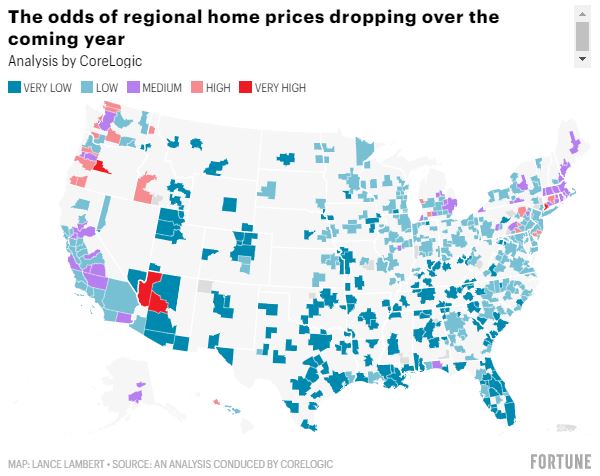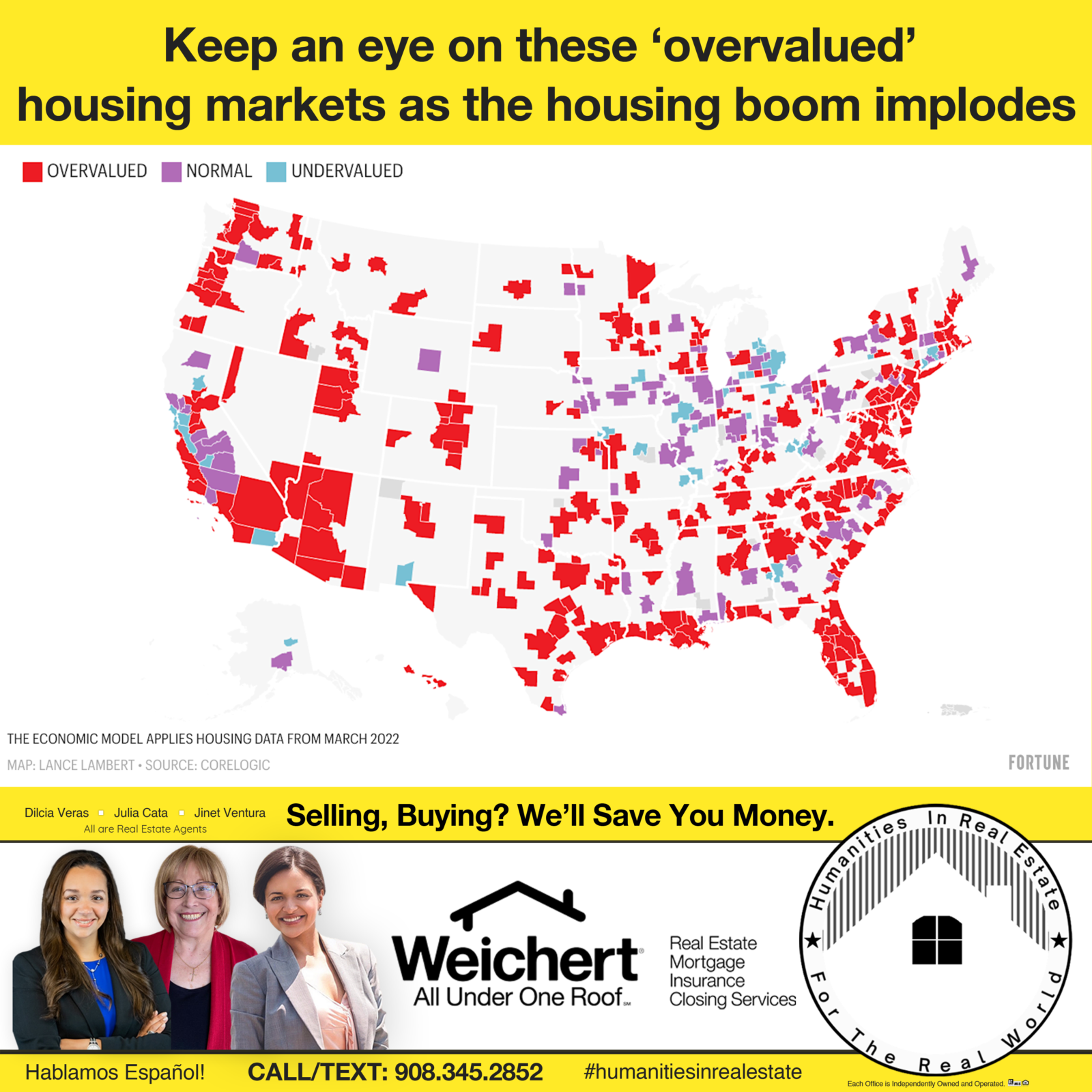Fundamental economics tells us that home price growth and income growth are interwoven. Neither can outrun the other for very long. That is what’s concerning about the pandemic’s housing boom: Over the past year, home price growth (20.6%) is four times greater than income growth (4.8%).
That disconnect has more economists flirting with the most hated two words in real estate: housing bubble.
Moody’s Analytics chief economist Mark Zandi tells Fortune it’s premature to use that term. A bubble, in his mind, would require both speculation-driven price growth and overvaluation. That said, we do meet at least one element of a bubble: overvaluation. Historically speaking, Zandi says, U.S. home prices are now priced ahead of what underlying economic data (i.e. incomes) would support.
But the overvaluation, by historical comparison, varies greatly by market. The housing pandemic boom—which is now coming to an end—was hardly even, with uprooted remote workers sending home prices in markets like Austin, Boise, and Charlotte skyrocketing well above the national rate of growth.
To find out where things stand at a local level, Fortune reached out to CoreLogic to see if it would rerun, using the latest data, the proprietary housing analysis the company provided us in April.
The real estate firm calculated a market risk assessment for around 400 metropolitan statistical areas. CoreLogic aimed to find out whether local income levels could support home prices. The finding? CoreLogic now deems that 67.9% of U.S. regional housing markets are “overvalued.” Back in April, CoreLogic's analysis had 64.7% of housing markets as “overvalued.” Meanwhile, CoreLogic now says only 24.5% of U.S. housing markets are “normal” and just 7.6% are “undervalued.”
The April analysis was built using final home sales figures from February, while this latest analysis uses final data from March, the reason being that sales figures take several weeks to become final.
Those “overvalued” housing markets now face a test. Mortgage rates, which have jumped from 3.11% to 5.1% over the past five months, have pushed the housing market over the top. New home sales, existing home sales, and mortgage applications are all plummeting. Inventory is rising fast, as are the percentage of home listings cutting their price.
Simply put, the pandemic housing boom is ending.
But does a cooling housing market mean home prices will soon fall?
Over the coming 12 months, CoreLogic forecasts U.S. home prices will still rise another 5.9%. However, the real estate firm calculates that some regional housing markets have elevated odds of seeing a dip.
In order to determine the likelihood of regional home prices dropping, CoreLogic assessed factors like income growth projections, unemployment forecasts, consumer confidence, debt-to-income ratios, affordability, mortgage rates, and inventory levels. Then CoreLogic put regional housing markets into one of five groupings:
- Very high: over 70% chance of a price dip
- High: 50%–70% chance
- Medium: 40%-50% chance
- Low: 20%–40% chance
- Very low: 0%–20% chance

Among the 392 regional housing markets CoreLogic measured, 44 markets qualified for the “medium” group, and 22 markets crept into the “high” group. CoreLogic categorized only four markets as having a “very high” likelihood of a price drop: Bend, Ore.; Prescott, Ariz.; Lake Havasu City, Ariz.; and Bridgeport, Conn.
A separate analysis by Moody’s Analytics is more bearish. The financial intelligence firm rates 96% of the nation's largest 392 housing markets as "overvalued" relative to what local incomes can support. That includes 149 housing markets that are "overvalued" by at least 25%. Heading forward, Zandi expects U.S. home price growth to plummet from a 20% year-over-year rate to 0%. At the same time, he expects 5% to 10% home price drops over the coming year in America's most "overvalued" housing markets.
In order, Zandi says these "juiced-up" regional housing markets are the most likely to see home prices decline: Boise; Colorado Springs, Colo.; Las Vegas; Coeur d’Alene, Idaho; Tampa; Atlanta; Fort Collins, Colo; Sherman, Texas; Jacksonville; Idaho Falls, Idaho; Lakeland, Fla.; Greeley, Colo.; Longview, Wash.; Charleston, S.C.; Albany, N.Y.; Denver; Clarksville, Tenn.; Greensboro, N.C.; Charlotte.
Source: fortune.com

